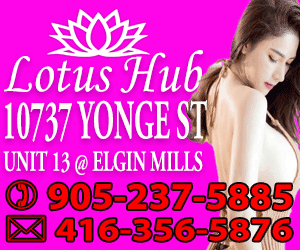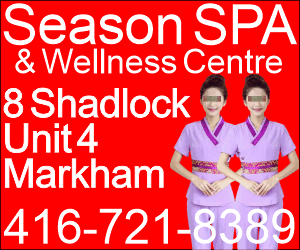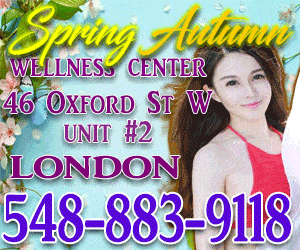BomPenuuua
New Member
- Joined
- Jan 10, 2011
- Messages
- 9
- Reaction score
- 0
- Points
- 1
Have just seen a full page article in The Sun newspaper this morning with the above heading!
QUOTE
Altrenative medics will face the same tough regulations as conventional doctors under new Government proposals.
One in four of us uses treatments such as massage, while acupuncture and aromatherapy are already available on the NHS.
Right now anyone can set up a clinic or advertise their alternative medical services. More alarmingly, they cannot be stopped from working - even if they damage a patient's health. The new laws will make every practitioner face strict tests but these will not be enforced until 2007.
Here Sun Health's Emma Morton finds out from Professor Jayney Goddard, head of Complementary Medical Association, how to tell the quacks from the qualified. And Sun GP Dr Carol Cooper gives her verdict on each alternative treatment.
Prof Goddard says:"Regulation will protect our profession. Patients need to know they're in safe hands."
ACUPUNCTURE
Qualifications to check: A practitioner should be a fully qualified Member of the British Acupncture Council (MBAC) and Member of the CMA (MCMA)
Sun Dr's verdict: It's moving into the mainstream and is of proven benefit for back pain and knee problems.
HERBAL MEDICINE
A practitioner should be a member of the Institute of Medical Herbalists (MIMH) or MCMA. They will usually have completed a three-year BSc degree in medicinal herbalism.
The main problem here is that a lot of herbs interact with conventional drugs. Just because a pill is natural doesn't mean it won't have side effects. Consult your doctor if you are taking other medicines
OSTEOPATHY
Osteopathy and chiropractic are the only two alternative treatments to be state registered. A qualified osteopath will be registered with the British Osteoppathic Council or the British Osteopathic Association.
This has been proven to help ease back pain, especially in the lower back, but is less effective for neck problems.
ALEXANDER TECHNIQUE
Teachers should be a member of the Society of Teachers of the Alexander Technique (STAT), should have completed a three-yearbtraining course and be insured.
Use this to prevent aches and pains. If you already have them it is less helpful.
MASSAGE
Types of massage vary from Thai to Swedish and most courses take about two years to complete. A qualified practitioner should be a member of the British Massage Council (MBMC) or the MCMA.
Results are variable but it can treat stress. Contact your GP before you have any form of masage as it can make symptoms worse.
HYPNOTHERAPY
Membership of the UK Council for Psychotherapy (UKCP), British Association of Counselling (BAC) and MCMA.
Can help dental pain but beware of practitoners who claim they can treat conditions others can't.
HOMEOPATHY
Member of the Society of Homeopaths (MSH) Homeopathic Medical Association (MHMA/MCMA) or Registerd Homeopath (RSHOM).
The jury is still out but it is likely to help some allergies.
AROMATHERAPY
Member of the British Aromatherapy Council(MBAC) or MCMA. Essential oils MUST be diluted or they can damage the skin.
Can relieve stress and and promote relaxation. Consult your GP before a treatment or if you are pregnant.
CHINESE TREATMENT
The CMA does not recommend these practitioners as many have trained in China and their qualifications cannot be translated. It is concened many practitioners may not be qualified.
I certainly would not recommend this. Studies show that many of the herbs used are potent and some even contain steroids.
CHIROPRACTIC
British Chiropractic Association (BCA) and registry with the General Chiropractic Council (GCC).
Can ease back pain and help arthritis sufferers but I wouldn't use it as the main treatment.
5 Questions You Must Ask
Thinking of getting treatment from someone who offers complementary health remedies? Here are FIVE crucial questions you must ask.
1. What are your qualifications?
2. Can I see a certificate of insuranc
QUOTE
Altrenative medics will face the same tough regulations as conventional doctors under new Government proposals.
One in four of us uses treatments such as massage, while acupuncture and aromatherapy are already available on the NHS.
Right now anyone can set up a clinic or advertise their alternative medical services. More alarmingly, they cannot be stopped from working - even if they damage a patient's health. The new laws will make every practitioner face strict tests but these will not be enforced until 2007.
Here Sun Health's Emma Morton finds out from Professor Jayney Goddard, head of Complementary Medical Association, how to tell the quacks from the qualified. And Sun GP Dr Carol Cooper gives her verdict on each alternative treatment.
Prof Goddard says:"Regulation will protect our profession. Patients need to know they're in safe hands."
ACUPUNCTURE
Qualifications to check: A practitioner should be a fully qualified Member of the British Acupncture Council (MBAC) and Member of the CMA (MCMA)
Sun Dr's verdict: It's moving into the mainstream and is of proven benefit for back pain and knee problems.
HERBAL MEDICINE
A practitioner should be a member of the Institute of Medical Herbalists (MIMH) or MCMA. They will usually have completed a three-year BSc degree in medicinal herbalism.
The main problem here is that a lot of herbs interact with conventional drugs. Just because a pill is natural doesn't mean it won't have side effects. Consult your doctor if you are taking other medicines
OSTEOPATHY
Osteopathy and chiropractic are the only two alternative treatments to be state registered. A qualified osteopath will be registered with the British Osteoppathic Council or the British Osteopathic Association.
This has been proven to help ease back pain, especially in the lower back, but is less effective for neck problems.
ALEXANDER TECHNIQUE
Teachers should be a member of the Society of Teachers of the Alexander Technique (STAT), should have completed a three-yearbtraining course and be insured.
Use this to prevent aches and pains. If you already have them it is less helpful.
MASSAGE
Types of massage vary from Thai to Swedish and most courses take about two years to complete. A qualified practitioner should be a member of the British Massage Council (MBMC) or the MCMA.
Results are variable but it can treat stress. Contact your GP before you have any form of masage as it can make symptoms worse.
HYPNOTHERAPY
Membership of the UK Council for Psychotherapy (UKCP), British Association of Counselling (BAC) and MCMA.
Can help dental pain but beware of practitoners who claim they can treat conditions others can't.
HOMEOPATHY
Member of the Society of Homeopaths (MSH) Homeopathic Medical Association (MHMA/MCMA) or Registerd Homeopath (RSHOM).
The jury is still out but it is likely to help some allergies.
AROMATHERAPY
Member of the British Aromatherapy Council(MBAC) or MCMA. Essential oils MUST be diluted or they can damage the skin.
Can relieve stress and and promote relaxation. Consult your GP before a treatment or if you are pregnant.
CHINESE TREATMENT
The CMA does not recommend these practitioners as many have trained in China and their qualifications cannot be translated. It is concened many practitioners may not be qualified.
I certainly would not recommend this. Studies show that many of the herbs used are potent and some even contain steroids.
CHIROPRACTIC
British Chiropractic Association (BCA) and registry with the General Chiropractic Council (GCC).
Can ease back pain and help arthritis sufferers but I wouldn't use it as the main treatment.
5 Questions You Must Ask
Thinking of getting treatment from someone who offers complementary health remedies? Here are FIVE crucial questions you must ask.
1. What are your qualifications?
2. Can I see a certificate of insuranc




































































































